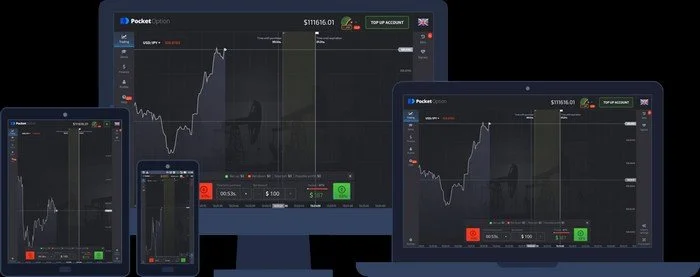Pocket Option OTC and Exchange Understanding the Differences

Pocket Option OTC and Exchange: Understanding the Differences
In the fast-paced world of online trading, understanding the different platforms is crucial for optimizing your trading strategies and maximizing profits. In this article, we delve into the particulars of Pocket Option OTC and Exchange trading, elucidating the differences, advantages, and how to navigate these platforms effectively. For a detailed schedule related to Pocket Option OTC, check out Pocket Option OTC and Exchange Hours https://pocket0pti0n.com/pocket-option-otc-schedule/.
What is Pocket Option OTC?
Pocket Option OTC (Over-The-Counter) trading allows users to trade assets directly among themselves, eliminating the need for a centralized exchange. In OTC trading, traders can engage in transactions of assets at flexible prices away from traditional market hours. This feature provides greater convenience for those who wish to trade outside standard exchange hours.
Advantages of OTC Trading
One of the major advantages of OTC trading is the increased flexibility it offers traders. The ability to trade beyond regular market hours allows for enhanced trading strategies. Furthermore, OTC markets can provide more privacy, as transactions happen directly between parties rather than being publicly listed. This can sometimes lead to less volatility, giving traders a greater sense of control.
What is Pocket Option Exchange?
On the contrary, Pocket Option Exchange operates like a traditional exchange where all trades are executed through a centralized platform. Here, prices are determined based on current market demand and supply, and all trades are publicly listed. This setup provides traders with more transparency, as they can see live market data and make informed decisions based on current market conditions.
Advantages of Exchange Trading
Using an exchange has its own set of advantages. Firstly, exchanges often have higher liquidity due to the numerous participants actively buying and selling assets. This can result in tighter spreads and better execution prices. Furthermore, the public nature of exchanges means traders have access to market data, which can facilitate more informed trading decisions.
Key Differences Between OTC and Exchange Trading
| Feature | OTC Trading | Exchange Trading |
|---|---|---|
| Market Hours | Flexible, can trade outside of standard hours | Limited to market hours |
| Transparency | Less transparent, private transactions | Highly transparent, public data available |
| Liquidity | Potentially lower liquidity | Higher liquidity due to a larger number of participants |
| Volatility | Can be less volatile | Can be more volatile based on market conditions |
Choosing Between OTC and Exchange Trading
The choice between OTC and Exchange trading largely depends on individual trading goals, risk tolerance, and personal preferences. For traders who value flexibility and privacy, OTC trading may be more suitable. Conversely, those who prioritize liquidity and transparency might favor exchange trading.
Strategies for Successful Trading
Regardless of the platform you choose, implementing effective trading strategies is critical. Here are some tips that can help enhance your trading experience:
- Research: Stay informed about market trends and news that may affect your trades.
- Risk Management: Set clear limits on loss and profit to protect your capital.
- Emotional Control: Keep emotions in check to avoid impulsive decision-making.
- Continuous Learning: Invest in learning new strategies and market analysis techniques.
The Future of Pocket Option OTC and Exchange
With the digital landscape evolving rapidly, both Pocket Option OTC and Exchange trading are likely to see further advancements. New technologies, regulations, and market demands will shape the future of trading, and it’s essential for traders to adapt accordingly.
Conclusion
To summarize, understanding the distinctions between Pocket Option OTC and Exchange trading is vital for traders looking to navigate this complex environment successfully. Each platform offers unique benefits catering to different trading styles and goals. By evaluating your trading needs and preferences, you can choose the most suitable option to optimize your trading experience. Happy trading!

